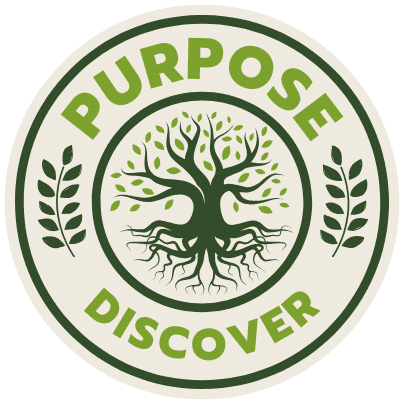There’s something quietly revolutionary about rituals. Not the grand, showy kind tied to ancient ceremonies or cultural festivals, but the tiny, everyday ones—the morning cup of coffee sipped in silence, the way you fold your clothes with care, or the habit of jotting down a single thought before bed. These small acts, repeated day after day, do more than fill our time. They build a kind of scaffolding for meaning in a world that often feels like it’s spinning out of control.
Think about it: life can be chaotic, unpredictable, messy. When everything’s swirling around, how do you anchor yourself? Daily rituals are a surprisingly sturdy anchor. They create a sense of order, a rhythm you can count on, even when the bigger picture looks confusing or bleak. It’s not just about being productive or efficient. It’s about carving out moments that say, “This matters. This is mine.”
Why do these little rituals feel so grounding? Because they’re deeply personal. They become a form of communication with yourself, a way to tune in to your own needs and values. When you light a candle at night before reading, it might seem trivial, but it marks a boundary between chaos and calm. It says, “I’m switching gears now. I’m choosing peace, focus, or reflection.” These signals, even if subtle, are powerful. They help the brain recognize that life isn’t just a series of random events but a narrative you’re continuously writing.
The Science of Habit and Meaning
Neurologically speaking, rituals activate the brain’s reward systems. Our minds crave patterns and predictability; it’s wired into us as a survival mechanism. When we repeat an action and it consistently leads to a positive feeling—calm, joy, accomplishment—the brain associates that behavior with reward, encouraging us to do it again.
But here’s the catch: it’s not just any routine that sticks or feels meaningful. The rituals that truly resonate are those infused with intention. They are chosen, not forced. They reflect your values and priorities, not someone else’s. That’s why a morning jog might be a sacred ritual for one person and a dreaded chore for another. Meaning isn’t universal; it’s deeply subjective.
Rituals also create psychological space for reflection. In the humdrum of modern life, it’s easy to lose track of what you’re doing and why. Rituals, especially those performed mindfully, can be a form of meditation disguised as habit. They slow you down, pull your attention inward, and open a quiet channel to your inner world.
A Personal Experiment in Finding Meaning
Let me tell you about my own journey with daily rituals. A few years ago, I was stuck in a rut—feeling disconnected from my work, my relationships, even my own sense of purpose. I started small. Every morning, I wrote three things I was grateful for. No fanfare, no pressure. Just three things on a piece of paper.
At first, it felt silly. But after a few weeks, it became something I looked forward to—a moment of calm before the day rushed in. It shifted my perspective, nudging me away from constant criticism and worry toward noticing the good, however small. That simple ritual didn’t change my life overnight. But it changed how I saw my life. And that shift was everything.
Rituals that foster meaning don’t need to be complicated or time-consuming. It’s about consistency and connection to self. Whether it’s a breathing exercise, a walk around the block, or an evening cup of tea taken without distractions, these acts accumulate. They build a narrative thread through your days, reminding you that your life has coherence and worth.
Rituals in Relationships: A Hidden Language
We often think of rituals as solo acts, but they’re just as crucial in relationships. Ever notice how couples have little rituals—like a goodnight phrase, a shared song, or a routine Sunday brunch? These repeated acts knit people closer together. They create a shared meaning, a language beyond words.
When life gets stressful, these rituals become touchstones. They remind you why you’re in it together. They say, “Even if everything else falls apart, we have this.” This is why therapist advice often includes creating couple rituals—because they build resilience and intimacy.
The danger lies in neglecting these rituals. When routines dissolve, relationships can lose their rhythm. They become transactional or chaotic, a series of interruptions rather than a dance. Rituals keep the music playing.
Why Rituals Can Feel Like Armor
It’s important to recognize that sometimes rituals serve as armor against uncertainty. When the world feels unpredictable, rituals offer a sense of control. They are a way to say, “I can manage this one part.” But that armor can become rigid. When rituals turn into compulsions, they stop serving meaning and start becoming a prison.
Finding balance is key. Rituals should breathe with life, not trap it. They should be flexible, evolving as you do. If you catch yourself resenting a ritual, it’s worth revisiting why you do it. Is it still serving your soul, or just your anxiety?
Rituals and the Modern Search for Purpose
In a culture obsessed with productivity and hustle, rituals might seem old-fashioned or soft. But the truth is, they’re a radical act of self-care and meaning-making. Purpose isn’t just a big, life-altering revelation. Often, it’s found in the small, repeated acts that give shape and substance to your days.
If you’re curious about exploring your own sense of purpose, there’s no better place to start than these daily rituals. They’re the threads that weave together identity, values, and intention.
For those who want to dig deeper into discovering personal meaning and aligning rituals with true purpose, resources like this thoughtful guide on uncovering your life’s direction can provide valuable insights and inspiration.
The beauty of rituals is that they’re always available. No special equipment needed. No expensive retreats. Just you, a little time, and willingness to connect with yourself. In a world that often feels fractured and fast, rituals whisper that something real and lasting is possible.
It’s tempting to overlook the power of small moments. But they matter. They add up. They turn the ordinary into the extraordinary. They make meaning not a distant dream but an everyday reality.
If you ever feel lost or overwhelmed, try this: pick one simple ritual, make it your own, and stick with it. Watch how it quietly shifts your sense of self and place in the world. It’s not magic—just human nature, doing its work. And if you want a little roadmap to guide you, check out this excellent resource for personal meaning and purpose. You might find exactly what you need, right where you are.
Ultimately, daily rituals aren’t just habits. They’re acts of love toward yourself. They say, “I matter. My life matters. And every day, I’m here to live it with intention.” That’s no small thing.

